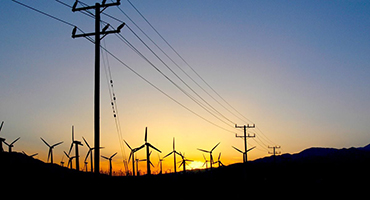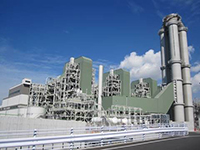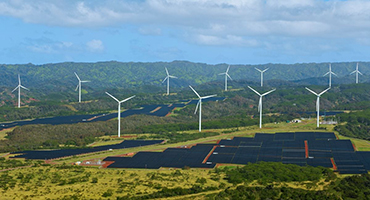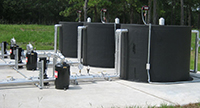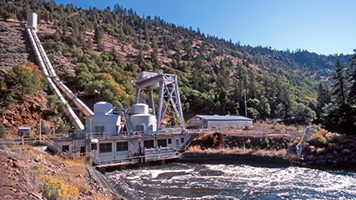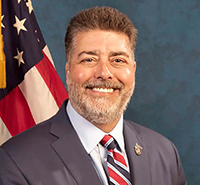From the Desk of RMEL Executive Director Rick Putnicki
2022 Reflections
As we approach the end of 2022 and plan for what is ahead for us in 2023, I am constantly reminded of how resilient our industry continues to be as we adjust and adapt to the challenges we have faced in these recent years. I am also reminded of the value our association provides for the members. After a two-year absence, this year we were finally able to come back together for our Spring and Fall events. We quickly recognized there is no replacement for coming together...the opportunity to see colleagues and industry peers in person and not on a monitor; to shake a hand and look into the eyes of the person to whom you are speaking; and to chase the white ball around the course talking business and sharing family updates. Being able to reconnect with members this year has reminded us of how powerful we are together. In this holiday season, let us not forget the human side of who we are and what we do. For me, it’s been our privilege to connect the RMEL membership this year. We are eager for the opportunity to grow, adapt, and improve our ability to connect in this upcoming New Year! Thank you to our Board, the Education Committees, and our membership for making your Association what it is today!
Upcoming Events
RMEL is closing out 2022 with two final events and kicking off 2023 right with an always-popular workshop. Learn more below:
3-PART WEBINAR SERIES: Infrastructure Investment and Jobs Act & Inflation Reduction Act – What’s New in Federal Policy and Funding
December 1st, 6th, and 8th, 2022 – All webinars 10:00 a.m.-11:00 a.m. MST – Virtual
This webinar series will provide utilities with background and information on two significant pieces of legislation – the Infrastructure Investment and Jobs Act (IIJA) and the Inflation Reduction Act (IRA). These two Acts provide significant monies for infrastructure. Additionally, there was a large focus on energy investment, almost $30B, for a variety of programs supporting investments in a wide variety of ways. With these investments, there are key policy priorities that inform this work, including racial equity, climate, and economy. We will welcome the DOE to provide an overview of the programs, and, in separate webinars, we will dig into the racial equity component of the grant applications to inform utilities on what equity is and how it’s defined by the Administration.
*If you missed Part 1 in the series, you can still register for the following parts in the series.
PLANNING SESSION: 2023 RMEL Fall Convention
December 15th, 2022 – 8:30 a.m.-11:15 a.m. MST – SRP in Phoenix, AZ
Members are invited to attend the planning session and support this vital process for developing the Fall Convention agenda. Presentation topics should be senior management focused. The topics can range from a CEO’s vision of the future to project case studies. Bring your topic and/or speaker suggestions, appropriate for the Fall Convention venue, to this meeting. Senior executive and C-level speakers preferred. Limited space is available for this planning session. Please RSVP with the name of the representative attending from your company. There is no registration fee. A complimentary breakfast and lunch are provided.
WORKSHOP: An Introduction to the Electric Utility
January 18th, 2023 – 8:30 a.m.-4:30 p.m. MST – Hilton Denver Inverness Hotel in Denver, CO
This workshop is designed to acquaint non-technical utility employees with the basics of their industry from the generation to the distribution of electricity. The workshop will focus on five areas: an overview to electricity and electrical power systems, information on conventional production methods, alternative technologies, transmission and distribution systems, and customer service. In the overview, you will learn about the basic theory of electricity, how it is produced, and delivered to your home. In the conventional production methods section you will learn the role of primary energy sources: water, gas, oil, coal, and nuclear. You will also hear about power conversion processes, system application, capital and operating costs and grid connection considerations.
The 2023 RMEL Foundation Scholarship Application is NOW OPEN!
The deadline to apply is Friday, February 24th, 2023
We encourage you to spread the word and share within your respective organizations and professional network. The deadline for students to apply is Friday, February 24th, 2023. Access the scholarship application to learn more! Please let us know if you have college/trade school/university contacts who would like to receive the scholarship information. Thank you for the Corporate and Individual Cash Donations! The RMEL Foundation Auction raised over $30,000. Learn more about 2022 Named Scholarship Sponsor opportunities for your company.
Merry Christmas and Happy Holidays!
From my family to yours, have a Merry Christmas, Happy Holidays, and a Happy New Year! Savor the opportunities you get to reflect on the spirit of the season. You all have accomplished so much this year, and we look forward to being there for you all in 2023. Stay safe and stay warm!
|
3-Part Webinar Series: Inflation Reduction Act & Bipartisan Infrastructure Law & Policy ---
PART 1: DOE's Grid Deployment Office Webinar --- Thursday, December 1st, 2022 | 10:00 a.m. - 11:00 a.m. MST (Virtual)
PART 2: Equity Webinar --- Tuesday, December 6th, 2022 | 10:00 a.m. - 11:00 a.m. MST (Virtual)
PART 3: Tri-State Webinar --- Thursday, December 8th, 2022 | 10:00 a.m. - 11:00 a.m. MST (Virtual)
Planning Session: 2023 RMEL Fall Convention --- Thursday, December 15th, 2022 | 8:30 a.m. - 11:15 a.m. MST (SRP - Phoenix, AZ)
Workshop: An Introduction to the Electric Utility --- Wednesday, Januaray 18th, 2023 | 8:30 a.m. - 4:30 a.m. MST (Denver, CO)
RMEL's trusted network is now accessible on Facebook, LinkedIn and Twitter. These are forums intended for RMEL members only. Working side-by-side in a cooperative manner, RMEL members band together for the common goal of bettering the industry and improving service for utility customers. For more than 100 years, these key principles have proven successful and, more importantly, are tried and true methods for building strong business relationships.
RMEL Champions is a prestigious group of RMEL supporters with access to useful and beneficial promotional opportunities. Thank you, 2022 RMEL Champions!
The U.S. Department of Energy has opened the first round of applications for $13 billion in competitive funding for projects it says will help reduce electricity costs, boost resiliency and build out the nation’s aging transmission system. Roughly 70% of the nation’s transmission lines are more than a quarter century old, the White House said in a statement.
|
The U.S. Department of Energy has awarded $2.8 million to a coalition of partners who will research fuel management options for next-gen nuclear reactors. EPRI will lead the team, which also includes Oak Ridge National Laboratory (ORNL), Southern Company and Deep Isolation.
Two studies differ over how much nuclear waste would be a factor with small modular reactors, or SMRs, such as those planned by NuScale and TerraPower.
America already faces a potential diesel supply crisis, especially in the northeast, due to a variety of factors that have led to inadequate regional refining capacity to produce the most critical transportation fuel. Now, a potential strike of freight rail workers threatens to complicate the situation at the worst possible time.
|
Exhaust emissions from gas engines and gas turbines used to be the primary focus of regulatory bodies seeking to lower the level of pollution. But now the U.S. Environmental Protection Agency (EPA) and associated local air districts have turned their attention to the policing of fugitive emissions.
|
State and federal decarbonization policies, combined with efforts to electrify many end-use appliances, threaten the long-term competitiveness of natural gas local distribution companies, or LDCs, Moody’s Investors Service warned in a research note issued.
A large portion of the North American electric grid could face energy shortfalls in extreme weather conditions this winter, according to an assessment from the North American Electric Reliability Corp. The situation is “unprecedented,” John Moura, NERC’s director of reliability assessment and system performance analysis, said in a call with media to discuss the report. “The system hasn’t been stressed in this manner in the past, and probably more importantly, it hasn’t been as widespread.”
The Inflation Reduction Act will upend key tenets of utility resource planning, including the need for bottom-up forecasting to account for a pending surge in electric vehicle and building load, according to panelists at a National Association of Regulatory Utility Commissioners meeting.
|
When it comes to ensuring reliable service to customers, the most important assets an electric power provider has are its employees, who are working to keep the lights on every day. It is vital utilities invest in the skills and knowledge of their crews who are working out in the field to maintain and repair the electric grid. Nebraska Public Power District (NPPD) has embodied this approach by building a new training and maintenance facility at its operations hub in York, Nebraska, U.S.
It would translate to a cumulative investment of between $1.6 trillion and $2.5 trillion and increase the market size to a range of $1.7 trillion to $3.6 trillion by 2040, according to the Long-Duration Energy Storage Council and McKinsey & Co.
|
New aggressive planning is needed to identify the long-duration storage technologies and find the land to grow enough resources to reach Biden net zero emissions goals, a DOE national lab reports.
The order paves the way for enactment of a settlement agreement nearly 15 years in the making by California, Oregon, the Yurok and Karuk Tribes, Berkshire Hathaway Energy-owned utility company PacifiCorp, fishing groups, and other stakeholders to carry out the ambitious plan to remove dams, and address fish populations, river health and Tribal communities and cultures.
|
Basin Electric was ranked among the nation’s top cooperatives by the National Cooperative Bank in its annual NCB Co-op 100® list, which names the nation’s top 100 revenue-earning cooperative businesses. Basin Electric was ranked #1 in the energy industry and #17 overall.
Sunflower Electric Power Corp. announced today that its board of directors has named Todd Hillman as the corporation’s next president and chief executive officer. Hillman will begin his tenure on Jan. 16 to succeed Stuart Lowry, Sunflower’s current president and CEO, upon his retirement. Hillman is the sixth person to lead Sunflower since it was formed in 1957.
|
Energy leaders focused on developing low-carbon economies in Arizona, the Navajo Nation and Nevada have joined forces to develop a regional clean hydrogen hub in the Southwest. The Center for an Arizona Carbon-Neutral Economy (AzCaNE), is collaborating with partners in the aforementioned areas to launch the Southwest Clean Hydrogen Innovation Network, or “SHINe.”
Salt River Project employees succeeded again in ranking highest in customer satisfaction for business electric service among all electricity providers in the nation, according to a recent study issued by J.D. Power. This is the second year in a row SRP ranked first among large electricity providers in the West Region and the eighth time in the last 10 years.
|
Xcel Energy announced a proposal to advance the retirement of coal operations at Tolk Generating Station in Texas to 2028, more than four years earlier than planned. With this earlier retirement, along with accelerated coal plant retirements in other states, the company will exit the use of coal by the end of 2030 when the Comanche 3 coal unit in Colorado retires.
A simple material can separate carbon dioxide from other gases that fly out of the smokestacks of coal-fired power plants. It lacks the shortcomings that other proposed carbon filtration materials have, rivaling designer compounds in its simplicity, overall stability and ease of preparation.
An increase in the efficiency of solar panels may be on the horizon, as research from The Australian National University (ANU) reduces their current limitations. ANU researchers have found a way to improve the performance of silicon photovoltaic (PV) or solar cells. This is done through the addition of 'passivating contacts' between the metal and silicon parts of the solar cell, making it more productive.
A new method for describing energy loss in organic solar cells has paved the way for building better and more efficient devices. Organic solar cells are an emerging technology with a lot of promise. Unlike the ubiquitous silicon solar panel, they have the potential to be lightweight, flexible, and present a variety of colors, making them particularly attractive for urban or façade applications. However, continued advancements in device performance have been sluggish as researchers work to understand the fundamental processes underlying how organic solar cells operate.
|



